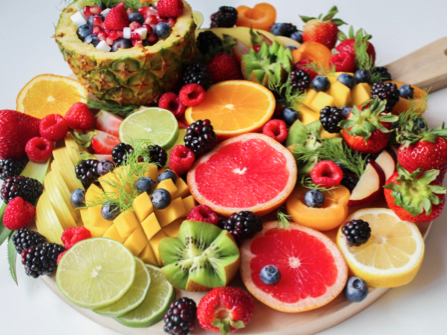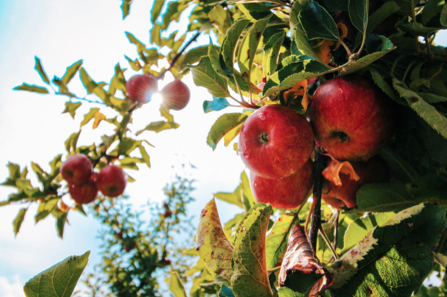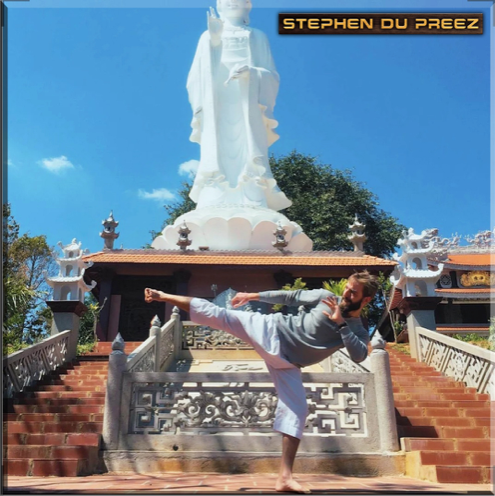Estimated reading time: 9-12 minutes
Key Topics: Medicine, food, healthy living
Introduction
The intended purpose of this article is to clarify some key concepts concerning lifestyle and diet as they relate to health and function. There will be some reiteration of key ideas across different contexts to help paint a multidimensional understanding of the principles. Firm understanding of core concepts and principles gives us functional perspective and adaptable tools which aids the progression of our lives.

“Let thy food be thy medicine and thy medicine be thy food” – Hippocrates
This is a statement of wisdom made over 2000 years ago! Simply put and in many ways, ‘you are what you eat.’ What you consume every day undoubtedly holds powerful sway over your health. Your body is a very intricate ‘ecosystem’ and ‘environment’ which exists within the larger environment of the world around you. Your body requires the external environment to balance itself and its needs across time. If the body gets too far out of dynamic balance (homeostasis), you get sick or die. Everything you consume is meant to serve some kind of functional purpose. Much of the modern problem is that we consume in great excess to what we actually need. We tend to eat, not based on what our body needs, but based on what we want to taste. The average person is more concerned with hedonistic pleasure than governing the vital life-altering process of regulating consumption to personal, situational requirements. Yes, life’s complexities will twist up our priorities if we aren’t mindful about keeping them straight. It takes a good captain to get a ship across the ocean, just as it takes a mindful individual to navigate and lead a good life.
There are many reasons why people follow bad diets, these include:
- Ignorance.
- Wilful blindness.
- Misplaced emotional comfort-seeking i.e. chasing dopamine release
- Placing a low priority on it which in most cases is once again base on ignorance. Diet is invariably more important than most of the things that get prioritised above it.
- Laziness if junk food is readily available.
- There could be a host of other reasons why people overeat or eat the ‘wrong’ things, but the point is to be mindful about what truly matters, because then you’re likely to act better. Most people’s health problems come down to poor personal lifestyle governance, unbalanced priority relegation and failing to meet fundamental needs.
Every time you put something in your mouth, it helps or harms you. Be a little more mindful about it; it is literally one of the most important base functions/actions you do as a living creature. EAT TO LIVE! NOT LIVE TO EAT!
By all means, make what you need as enjoyable as possible. Food can still be delicious and something to look forward to, but function should come first. The purpose of eating is to take what you NEED from the outside environment (nature) and make it part of your internal ‘environment’ (body). Regulating your consumption requires matching your behaviour to the present situation and circumstance, whilst also considering likely relevant future factors. e.g. fattening up for winter IF food was going to be scarce; eating high energy meals leading up to a marathon or in preparation for a hard day’s physical labour. These are examples of consuming more than you need now in preparation for what you will need later. Keep your consumption relevant to what you are doing and what you are going to be doing.

“We cannot live in a world that is not our own, in a world that is interpreted for us by others. An interpreted world is not a home. Part of the terror is to take back our own listening, to use our own voice, to see our own light.”– Hildegard of Bingen
The ‘environment’ of your body has an inseparable, transactional connection to the environment you are in. Every breath you take, every movement you make, everything you consume or produce (including the heat you give off or absorb)… EVERYTHING about you is an ebb and flow of energy in some shape or form between your body’s ‘environment’ and the greater environment you are in. Personal governance is the most important process to keep those transactions in a range which are likely to produce positive results. Simply put, everything you do matters and has some kind of influence on your life and environment.
Key Ideas and concepts to better understand medicine, food and healthy living
- You are a complex set of interconnected systems which exists inside an even larger, even more complicated set of interconnected systems.
- What is ‘medicine’ and what is its purpose?
- What is the best medicine to treat and prevent disease?
- ‘Let Food be thy medicine’ – what does this mean?
You are a complex set of interconnected systems which exist inside an even larger, even more complicated set of interconnected systems
The complex systems that make up the totality of YOU, exist as part of the ever-changing greater environment. Your body exists as an adaptable, everchanging personal ‘environment’, which is continuously attempting to harmonise and balance itself with the greater environment. We are fundamentally adapted to our planet. Nature provides that which we need, because we are in fact part of nature. Our needs directly correlate with what is available in nature. If this was not the case our species would have died out long ago! We are organisms inseparably linked to our environment and the fundamental nature of reality. The air we breathe, the food we eat, the water we drink are all part of the circle of life we’ve adapted to throughout our entire developmental history.

“The earth which sustains humanity must not be injured. It must not be destroyed!” – Hildegard of Bingen
Here are some contextual examples:
- If the environment gets too cold relative to your ability to adapt to it, your body will slowly shut down and die i.e. too much of your body heat flows from the relatively high potential of your body to the situationally low potential of the environment. This results in hypothermia and eventual death.
- If your energy reserves get too low, your body will slowly shut down until you die.
- If you breathe gets too far out of balance/homeostasis, you will get sick, pass out or die.
- If you spring a ‘leak’ and lose too much blood, you will die.
- If you consume anything in excess of what your body needs, you begin to damage the balance between the interconnected systems. This damages your health. If you do enough damage, you get sick and or die. Some substances are immediately toxic to the body. Others might be necessary for function, but become toxic when consumed in excess of what the body needs.
Anything we consume in excess to what we need, becomes toxic. Too much of a good thing becomes a bad thing.
What is ‘medicine’ and what is its purpose?
Medicine is often defined as a ‘drug’ or ‘preparation’ used in the treatment or prevention of disease. This definition gives us auseful word for describing the things we make which serve the purpose of treating and preventing disease. BUT, at the same time, it is a hugely inadequate explanation for what medicine truly is from a broader functional perspective.
To better understand how to treat and prevent disease, you need to understand that the most important things which serve this purpose, are not ‘medicine’ as defined above. It is conceptually more helpful to our understanding and action, to think of ‘MEDICINE’ as anything which serves the purpose of improving or maintaining health. Thinking of medicine in this way creates a stronger understanding of the causal connections between what we do and the outcomes we get. This is crucial to constructing and maintaining a healthy lifestyle which creates the by-product of health and longevity. All the pills in the world won’t save you if you can’t see how your daily actions affect your health.
The embodiment of virtue tends to help us live well. i.e. embodying the ‘spirit’ of courage, wisdom, temperance and justice (for example) will help you better govern yourself not only for your own benefit, but for the benefit of those around you as well. We will touch on the concept of virtue and its relationship with health in a separate article.
| Key point takeaway: | Start thinking of ‘medicine’ as anything which serves the purpose of improving or maintaining health. This is where lifestyle comes in. A personally responsible lifestyle, generated from an engaged and embodied individual, is far more potent in terms of maintaining and improving health than any pill or drug will ever be. *There will be times when certain medicines will be the exact treatment you need to get better. Antibiotics and other lifesaving medicines can potentially work ‘miracles’ under the right circumstances, but they shouldn’t be abused. Most pharmaceutical medicines quickly become more harmful than beneficial outside of when they are needed. |
What is the best medicine to treat and prevent disease?
This is a question which has been a topic of heated debate since ancient times. And it’s one which many modern scientists have foolishly attempted to apply an objective, fixed answer to. I say ‘foolishly attempted’, because it is impossible to apply a fixed objective truth to a subjective question. That is to say, you can’t apply a fixed answer to a question that is relative to the subject, situation and circumstance. The best answer you can give without context is simply, ‘it depends’. Situation and circumstance dictate what the best medicine is, given the contextual narrative. Giving a bottle of water to someone dying of dehydration is massively different to giving that same bottle of water to someone who is drowning at the bottom of a pool; context matters!
Below are a few examples of how the ‘best’ medicine for us is often not what we commonly think of as medicine at all. Often the ‘best’ medicine comes in the form of addressing a component of our everyday lives. Depending on your situation and circumstance, one of the following may be the ‘best’ medicine:
- Water
- Sleep
- Having a discussion with someone about how you feel (negotiating and navigating for peace of mind)
- Salt or minerals
- Sunshine
- Clarifying your value hierarchy and prioritising
- Stabilising or securing your financial situation
- A simple hug and some emotional reassurance at the right time could be better than the ‘best’ drugs on the market.
- And of course, the key focus of today’s article, a personally appropriate diet.
All of the above can make the difference between sickness and health in the relevant situation and circumstance. What the ‘best medicine’ is for you is constantly changing. What you need most is always in a state of flux in relation to your environment (internal and external).
What you need is relative to the nuance components of your unique lifestyle. Your needs are changing all the time. Only you can regulate your consumption (and production) to correlate with your own dynamic shifting needs across time.
Think of HEALTH as a DERIVATIVE of FUNCTION
What the body needs in order to function optimally is constantly changing. Maintaining a dynamic balance with situational and circumstantial requirements is the key to nurturing function and thus create the by-product of health. This is an ongoing process of dynamic shifting until the day we die. Such is the nature of life. The only people without problems and obstacles to contend with, are dead people. Life is about staying connected and ‘harmonised’ with the ever-changing situation and circumstance. The most successful people are the ones who are best able to sync with the needs of the moment. They navigate the complex series of their personal interactions in such a way that guides their situation and circumstance (story) forwards towards desirable outcomes. The clearer your value hierarchy and the greater your adaptive competence, the more likely you are to produce a favourable result moment to moment.

“It is more important to know what sort of person has a disease than to know what sort of disease a person has.” – Hippocrates (This quote is worth rereading!)
| Key points takeaway: | Regulating your own personal needs across time, is the ‘best’ medicine (looking after yourself given the context of situation and circumstance in the present moment and in the predicted future).Health is a derivative of function.Function is powerfully linked to all aspects of our being. i.e. Physically, mentally and emotionally. (Balance your efforts to keep your various needs meet.)Simple put, look after yourself like you are actually someone you care about! This will help keep you in touch with what’s important and what you need to ‘do’ and ‘be’ in order to be ‘healthy’. |
“Let Food be thy medicine” – What does this mean?
Together as a species we exist within nature
This is a fundamental truth that often seems overlooked. For the entirety of human history on this planet, we have existed as part of the ecosystem. Even now in our man-made urban environments we still require the bounties of nature. We are fundamentally adapted to our planet. Nature provides that which we need because we are in fact part of nature.
“Let food be thy medicine” is a statement of personally responsibility
It is the responsibility of every individual to regulate their own consumption relative to their individual needs! Your needs are relative to your current condition, situation and circumstances (at ‘this’ moment in time). What you need to eat to be healthy is always changing. There is no fixed solution to produce health across all human possibilities. Health is more like a personal energy field which each of us needs to regulate and nurture. Health thrives or deteriorates in context with the ebb and flow of transactions within our environment/reality.
A good diet meets the NEEDS of our body for function, without excess
Consuming more than you need or things that you don’t need is foolish. Health is a state of balance. Excess beyond contextual relevance is poison. Today, many people eat as though they are going into a never-ending winter, which never comes.
Dietary requirements just like most (possibly all) individual requirements, are subjective. That is to say, they are relative to the individual’s needs, given their situation and circumstance at the time. Not only will the needs of one individual be different to the needs of everyone else’s, but their own needs will vary across time. Life is not static and our needs are relative to the changing environment both within us and outside of us. Trying to impose fixed requirements/needs on something like diet, is foolish. There are guidelines which create parameters relative to our needs, which we can use to regulate our lifestyles. We will explore these in a future article.
In conclusion
Our needs are directly linked to what’s available in nature. We are adapted that way. Whenever possible, harmonise your needs with nature. It is this which leads to health and longevity. So, let food be thy medicine.

“The earth is at the same time mother, She is mother of all that is natural, mother of all that is human. She is mother of all, for contained in her are the seeds of all. The earth of human kind contains all moistness, all verdancy, all germinating power. It is in so many ways fruitful. All creation comes from it.” – Hildegard of Bingen
……………………………………………………………………………………………………………………………….

https://web.facebook.com/StephenFitnessandPhysio
Article Word Count: 2587
Author: Stephen du Preez
Date: May 28th, 2020
